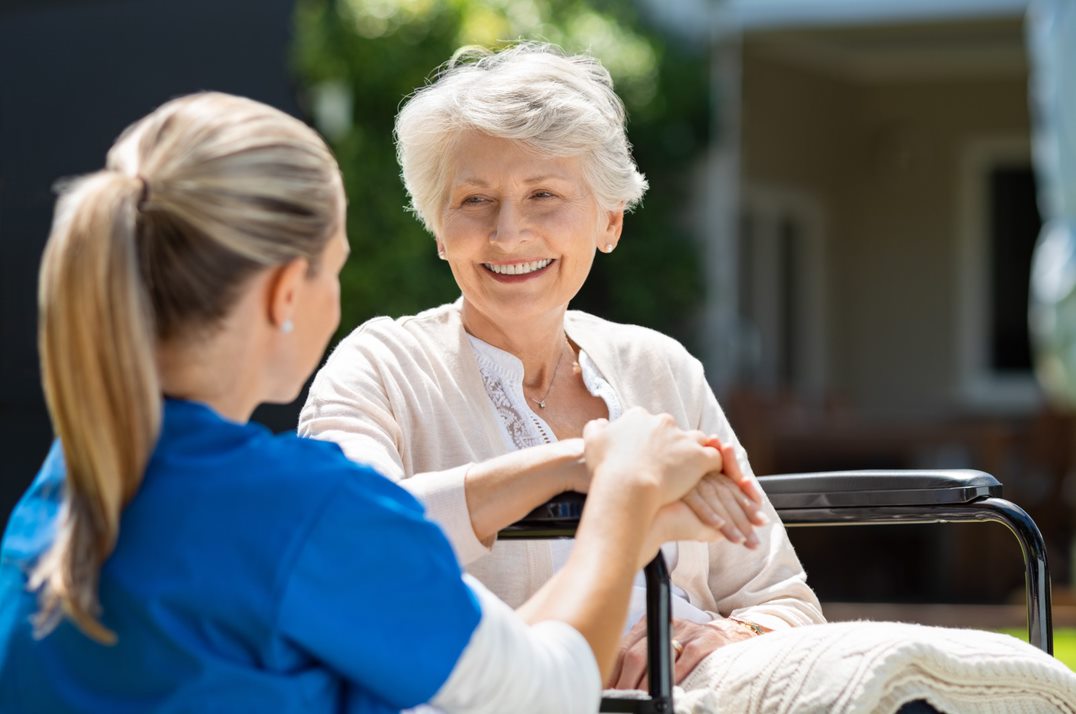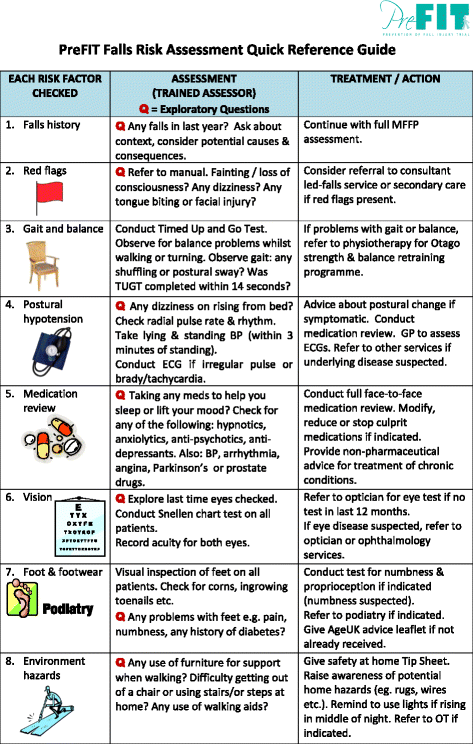The Ultimate Guide To Dementia Fall Risk
The Ultimate Guide To Dementia Fall Risk
Blog Article
The 4-Minute Rule for Dementia Fall Risk
Table of ContentsThe Best Guide To Dementia Fall RiskA Biased View of Dementia Fall RiskSome Known Details About Dementia Fall Risk The Ultimate Guide To Dementia Fall RiskExcitement About Dementia Fall Risk
Based on signs and signs, such as evidence of head injury or a brand-new focal neurologic shortage, computed tomography or MRI of the mind may be suggested. An analysis for reasons for syncope need to be carried out only if there is strong suspicion, as in the situation of reoccurring, inexplicable drops
Health care carriers utilize an autumn risk assessment to identify your risk aspects for falling and make useful suggestions. Some individuals attempt to reduce their fall risk by restricting their activity or aiming to be more cautious. These sympathetic actions aren't enough - Dementia Fall Risk. A loss threat assessment is essential due to the fact that understanding which elements raise your possibilities of dropping assists you: Minimize your danger of falling or injuring on your own.
All grownups 65 years and older must have a preliminary fall threat screening. Have actually fallen in the past year. Worry about dropping.
Dementia Fall Risk Things To Know Before You Get This

Discover this detailed nursing treatment strategy and management guide to properly protect against danger for drops among individuals. Acquire essential expertise about the nursing analysis, nursing medical diagnosis, and goals specifically tailored to people who go to risk for drops. A is specified as an event that leads to a person coming to relax accidentally on the ground or flooring or other reduced level (WHO, 2021).
Dropping is the second leading reason of death from unintended injuries worldwide. It is approximated that fall death prices in the U.S
The 6-Second Trick For Dementia Fall Risk
If this rate continues, the CDC expects 7 fall fatalities every hour by 2030.
Each year, over 800,000 clients are hospitalized as a result of falls. Registered nurses play a major duty in preventing drops for their patients via education, assessing fall threat, developing safer environments, and navigate to this website providing treatments in stopping injuries from drops. Several threat factors and conditions add to drops, consisting of the following:. Aged 65 years and older; reduced limb prosthesis; usage of assistive More Bonuses devices such as pedestrian, crane, and mobility device; living alone.
Individual will certainly demonstrate careful avoidance measures. Individual and caretakers will carry out techniques to enhance safety and prevent drops in the home. Autumns are because of numerous elements, and an all natural approach to the individual and atmosphere is essential. Suppose a person is taken into consideration at high threat for drops after the testing.
The Only Guide to Dementia Fall Risk
A requires making use of a verified device that researchers have checked out to be valuable in calling the sources of drops in a person. As an individual's health and conditions adjustment, reassessment is required. The degree of fall risk can be established using the evaluation of innate and external aspects. Standard evaluation tools can additionally be utilized (reviewed listed below).
People are a lot more most likely to fall once again if they have maintained one or more falls in the past six months. The older populace is at raised danger of fall-related readmissions based upon a research study determining the elements predictive of repeat falls associated end results (Prabhakaran et al., 2020). Persons with impaired awareness and disorientation may not understand where they are or what to do to assist themselves.
Furthermore, confusion and damaged judgment boost the client's chance of dropping. The ability of people to secure themselves from falls is impacted by such variables as age and development. Older people with weak muscular tissues are more probable to drop than those that preserve muscle toughness, versatility, and endurance. These changes include minimized aesthetic function, impaired color assumption, adjustment in center of gravity, unstable gait, decreased muscular tissue strength, reduced endurance, transformed depth understanding, and postponed reaction and reaction times.
Not known Facts About Dementia Fall Risk
Less comparison sensitivity was fairly connected with both increased prices of best site drops and other injuries, while lowered aesthetic skill was just connected with boosted fall price (Timber et al., 2011). Sensory perception of ecological stimuli is paramount to safety and security. Vision and hearing problems limitation the person's capability to view risks in the surroundings.
Older adults who have bad equilibrium or difficulty walking are much more likely to drop., or other medical conditions and treatments., and use of psychotropic drugs (Stanmore et al., 2013).
Report this page